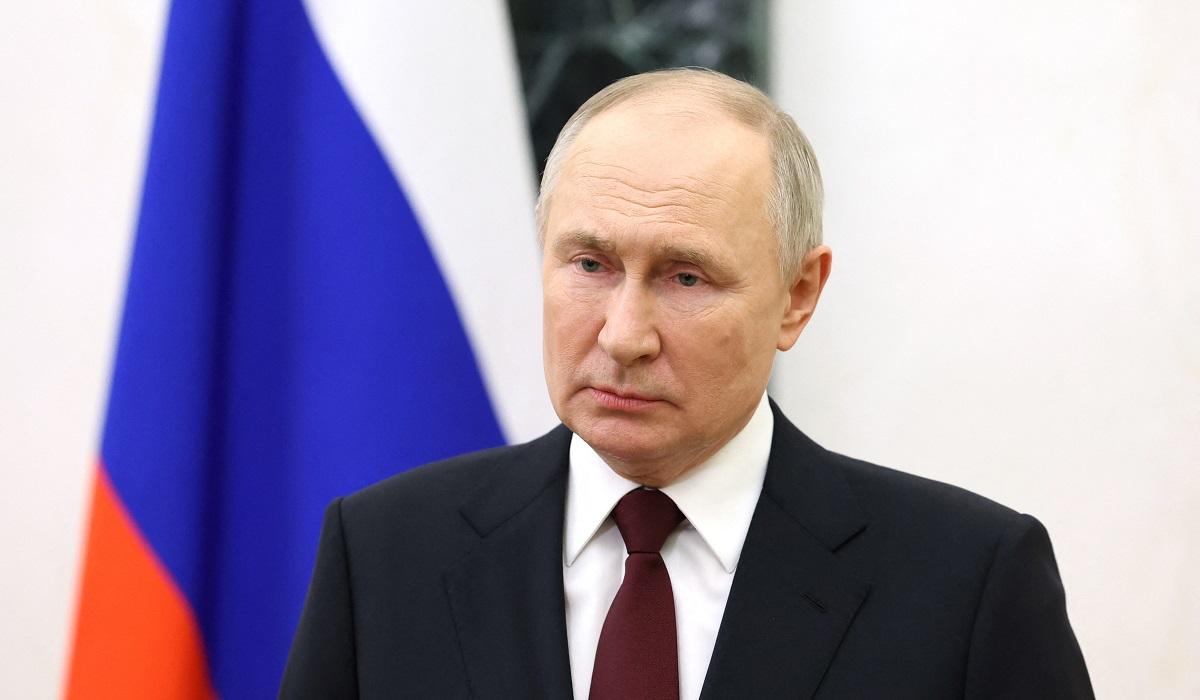Putin warns West of nuclear war risk

MOSCOW — Russian President Vladimir Putin warned on Thursday of a "real" risk of nuclear war if the West escalates the conflict in Ukraine.
In a defiant speech in Moscow, the Russian leader said his soldiers were advancing in Ukraine and warned the West of "tragic consequences" for any country that dared to send troops to Kyiv.
"They have announced the possibility of sending Western military contingents to Ukraine... The consequences for possible interventionists will be much more tragic," Putin said in his annual address to the nation.
"They should eventually realize that we also have weapons that can hit targets on their territory. Everything that the West comes up with creates the real threat of a conflict with the use of nuclear weapons, and thus the destruction of civilization," said Putin.
His comments appeared to be a response to French President Emmanuel Macron's refusal earlier this week to rule out sending troops to Ukraine—a refusal that drew rejection from leaders in Europe.
Western leaders have repeatedly criticized Putin for what they see as his reckless use of nuclear rhetoric since Moscow launched its full-scale military offensive against Ukraine.
After pulling Russia out of arms control treaties with the United States and previously warning he was "not bluffing" when he said he was ready to use nuclear weapons, Putin had appeared in recent months to dial down his nuclear threats.
But the fresh warning comes with the Kremlin buoyed by recent gains on the battlefield in Ukraine, an economy that has largely defied sanctions, signs of Western support for Ukraine fraying and ahead of an election certain to extend his term in the Kremlin until 2030.
Putin confident
That marks a sharp reversal in fortunes for Moscow over the last 12 months.
Last year at this time, Russian troops were reeling from Ukrainian counteroffensives that pushed them back in northeastern and southern Ukraine.
But after a Ukrainian counteroffensive in the summer of 2023 failed to bring similar results, today Kyiv has moved to defensive positions.
The initially strong Western support for Ukraine also appears to be shaking, with a $60-billion US aid package stalled in Congress.
Outgunning Ukrainian forces on the battlefield, Putin's troops seized the eastern stronghold of Avdiivka and are attempting to build on their advances.
And on the economic front, Russia is faring better than many expected.
Massive investment in military production, as well as high salaries and benefits for soldiers, has largely shielded the economy from the worst consequences of Western sanctions.
Putin also touched on a number of domestic issues in his speech, outlining his pitch to Russians ahead of a presidential election that will take place March 15-17 without any real opposition candidates on the ballot.
There is little doubt on the outcome of the vote, but Putin has been making numerous media appearances since the start of the year, including recently flying a Russian bomber.
His speech at the Gostiny Dvor Palace near Moscow's Red Square was broadcast not only on television but also on large digital screens and free of charge in cinemas across the country.
It also comes on the eve of the funeral planned in Moscow for Putin's top opponent Alexei Navalny, who died in prison on 16 February in unclear circumstances.
Putin, who famously never referred to the opposition leader by name, has so far remained silent on Navalny's death that prompted outrage at home and abroad. — Agence France-Presse




